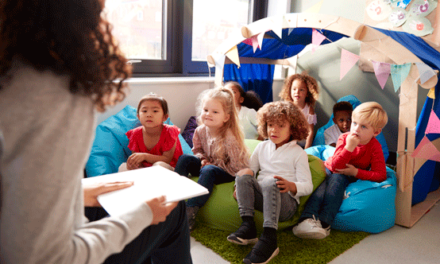
Technology isolates children from each other and may be hampering their communication and collaboration skills.
My elementary-aged children would rather stay inside and watch TV or play on the iPad than go outside and run around, play catch, or ride a bike. My middle school child could play Minecraft for six hours without stopping to eat, and my friends’ middle school children prefer to text each other from next door or even the next room to talking face-to-face. My neighbors’ high school children don’t leave their bedrooms at night or weekends because they can FaceTime or text their friends while doing homework or playing video games. Have they become accustomed to the virtual world we live in, or is something wrong?
Technology allows us to accomplish more in less time and exposes us to information and items that were unimaginable years ago. But what are we losing? Children learn to express themselves through free play outside where their imaginations are challenged as they freely explore their environment. Middle school children are learning who they are and how the world operates and how people interact. Are they also learning how to interact appropriately and with good communication skills if they aren’t spending time together? High school students are developing skills they’ll need to become productive working adults, but how are their social skills developing in their virtual worlds?
Have children become accustomed to the virtual world we live in, or is something wrong?
We risk educating an entire generation of students who don’t know how to work together or communicate effectively face-to-face. While they may be learning how to communicate virtually, they lack the confidence and knowledge of reacting verbally and with appropriate body language when engaged in a face-to-face conversation. I recently witnessed a mother encouraging her 9-year-old daughter to email another 9-year-old friend about an incident on the playground instead of speaking to her at school when the situation occurred. What happens to our society as the virtual world becomes the default mode of communication in the real world? In order to become democratic and engaged citizens, children need a balance of face-to-face time and interactions in conjunction with our virtual world.
Here are some things teachers can do to increase their students’ face-to-face communication and interaction:
- Create opportunities that require students to speak in front of others; teach them about using eye contact, nonverbal cues, and articulation when speaking.
- Teach students appropriate email etiquette.
- Encourage children to communicate freely during a group project as they discuss steps for completing the project and using their problem-solving skills. Offer many opportunities for students to collaborate and work together.
- Once students complete a project, have them stop to analyze what communication aspects worked well. For example, ask them to question who talked too little, how nonverbal cues worked, and what they can do to improve.
- Model good interactions. Teaching can be a lonely profession — take opportunities when possible to model team teaching or interactions in the classroom.
Educational leaders can promote face-to-face social skills among students to parents:
- Encourage parents to have rules at home about when children can watch TV, use a tablet, or text on their phone. For example, a typical house rule may be that everyone’s phone “sleeps” in the same room at night — an office or the laundry room.
- Encourage conversation at the dinner table (or another time) where electronics are not present. (Every ding of a text message distracts the people speaking and those listening.)
- Encourage parents to balance in-person interactions with virtual interactions for their children by encouraging free play outside and in-person interactions at school and at home.
- Use a “Technology Corner” in a school newsletter to provide these types of suggestions to parents.
We must teach children how to balance the benefits of operating in the virtual world and in face-to-face situations.
CITATION: Walmsley, A. (2014). BACKTALK: Unplug the kids. Phi Delta Kappan, 95 (6), 80.
ABOUT THE AUTHOR

Anglea Walmsley
ANGELA WALMSLEY is associate dean at Northeastern University-Seattle, Seattle Wash.










